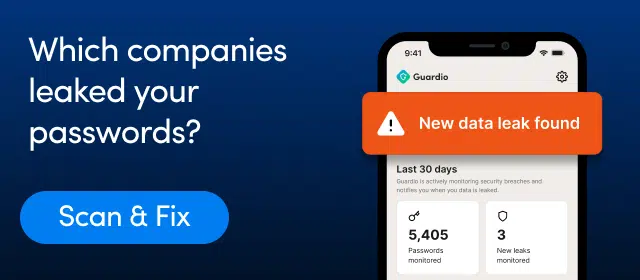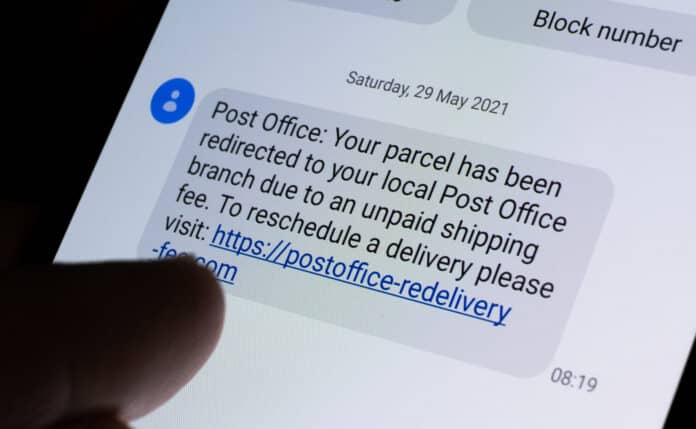As the U.S. continues to see an increase in online shopping due to COVID-19, so too do consumers observe a steady rise in package deliveries – and unfortunately, fraudsters have taken advantage of this trend through scam calls and texts intended to steal money and personal information from unsuspecting victims. The Federal Communications Commission (FCC) has received numerous complaints regarding these delivery notification scams as they continue to adapt their methods according to current trends.
Widespread delivery and shipping scams
During the holidays, when numerous packages are sent out, delivery scams and theft are at an all-time high. Scammers try their luck preying on shoppers who may be too busy or distracted to think twice before reacting. However, these swindles can occur any time of year—so it’s essential to remain vigilant no matter what season it is.
Phishing scams
You should be wary of delivery scams that start with an email or text message claiming to have a package for you, as warned by the Better Business Bureau. These messages usually contain a “tracking link” asking you to click and update your payment information. Sometimes, this link could lead you to a website that requests personal information from you or even install malware on your device.
The US Post Office has raised a warning about fraudulent delivery texts. These messages, which declare that an upcoming USPS shipment requires your action and contains a web link not affiliated with the Postal Service, should be disregarded.
To help their customers avoid deceptive package delivery schemes, both FedEx and UPS have placed information on their websites. Neither of these companies sends out texts or emails asking for payment or personal details from unsolicited sources.
Missed delivery note
Fraudsters also utilise a deceptive delivery approach by leaving “missed delivery” tags on your door. According to this scam, they will claim that it is hard for them to deliver the package and ask you to call a specific number to reschedule the shipment. However, their true motive here is obtaining personal information from you. Unfortunately, the number you call back may be answered by an imposter claiming to need verification of your account or payment details. Defend against these malicious threats and never provide sensitive data unless requested through reliable channels such as financial institutions and retailers with secure websites.

Watch out for any scam calls or texts claiming you must pay a customs fee or tax before your delivery can be made. Additionally, beware of fake delivery notices with an 809 area code (or another 10-digit international number) asking you to call back—this could leave you paying exorbitant connection fees and per-minute rates.
When a suspicious email or text message appears genuine, never click the link it contains or call back its number. Contact the delivery service or seller through an official website or verified number for confirmation.
Tips to help you avoid delivery scams
- If your package contains something of great worth or delicacy, don’t forget to acquire shipment insurance. Furthermore, ensure you obtain the tracking number and then keep an eye on its progress until it’s safely in your hands.
- Be wary of any text messages, calls or emails claiming a missed delivery. Authentic courier services usually leave a “missed delivery” notice at your doorstep. Before following the directions on the form you receive, inspect it thoroughly and ensure it is legitimate. It’s essential to keep tabs on what you’ve requested so that you have a better understanding of when it will arrive. To do this, avoid clicking any links and instead go directly to the delivery carrier’s website or log into your retailer’s tracking tools. This way, you can stay up-to-date with the progress of your shipment.
- Protect your device from phishing scams with browser protection software. Unsuspecting internet users are regularly vulnerable to phishing scams and fraudulent websites that aim to steal personal information. These sites often appear as unknown links within emails, social media posts, popups and ads, but hackers go to great lengths to make them look legitimate. Thankfully Guardio is here with a better solution – one designed to reveal these malicious sites for what they are and help you protect your device from being compromised. Guardio provides unparalleled protection against phishing and other malicious sites as our in-house security team develops groundbreaking features that go beyond the standard blacklists of most products.
- Invest in a signature request: This feature may cost extra, but it is worth every penny! With this service, delivery services won’t drop off packages unless someone is there to sign for them. Your packages will be much safer and more secure when you have a signature request set up on your account.
- Don’t let your package sit idle on the doorstep to ensure it is delivered securely. Leaving packages outside makes them vulnerable to theft – no one wants that! Have your delivery sent directly to a colleague or safe companion who will be home to accept it instead. And suppose you’d like an extra layer of protection for greater peace of mind. In that case, some courier companies are now providing lockers where you can store essential items and access them using a unique code provided by the company upon arrival.
- Upon receiving your package, inspect it for any signs of damage or tampering. If you suspect something is wrong with the shipment or that what you bought is not what was delivered, reach out to the seller immediately. Also, check their return policy in case there are damaged items or you don’t want them anymore.

Final thoughts
To avoid delivery scams and protect your personal information, it is essential to be vigilant and take the necessary steps when receiving packages. This includes verifying all forms of communication, acquiring shipment insurance, paying close attention to tracking numbers, and practicing caution when dealing with unsolicited emails or texts. Additionally, you should consider investing in a signature request service, browser protection software or choosing an alternate location for package delivery. Finally, inspect all packages upon arrival and immediately report any suspicious activity to your seller. With these tips in mind, you can help protect yourself from phishing scams and other delivery-related frauds.

